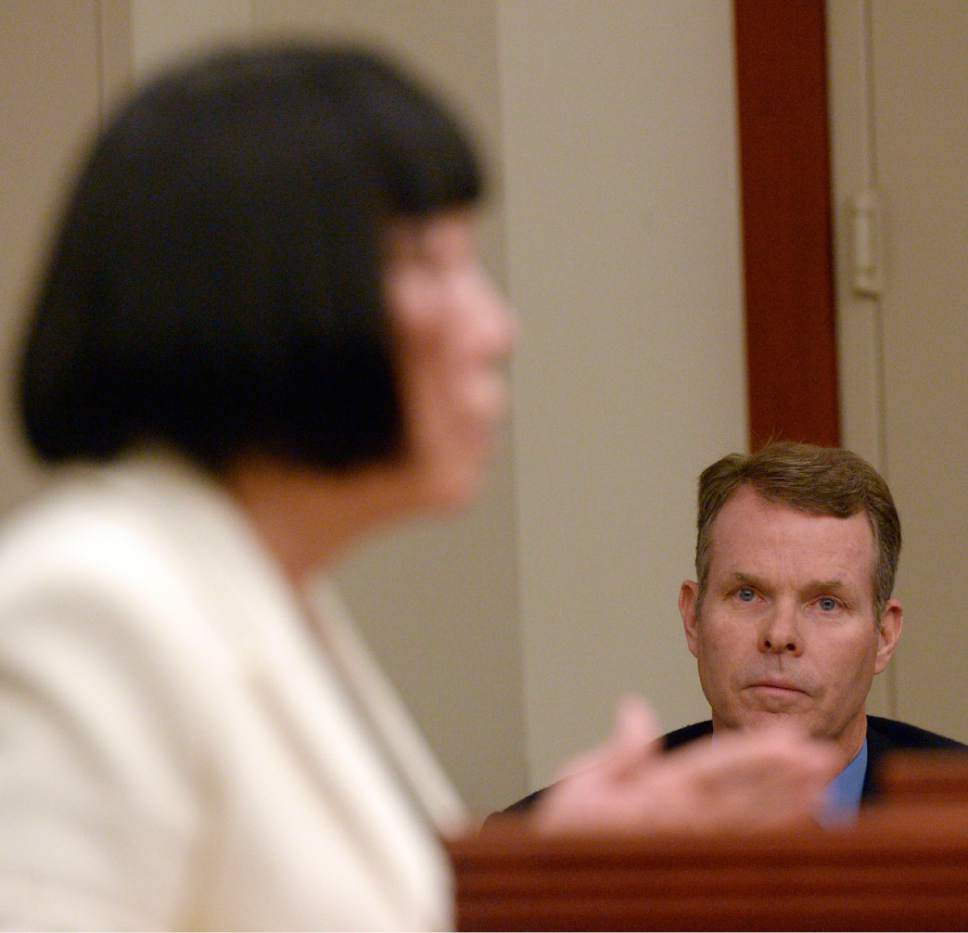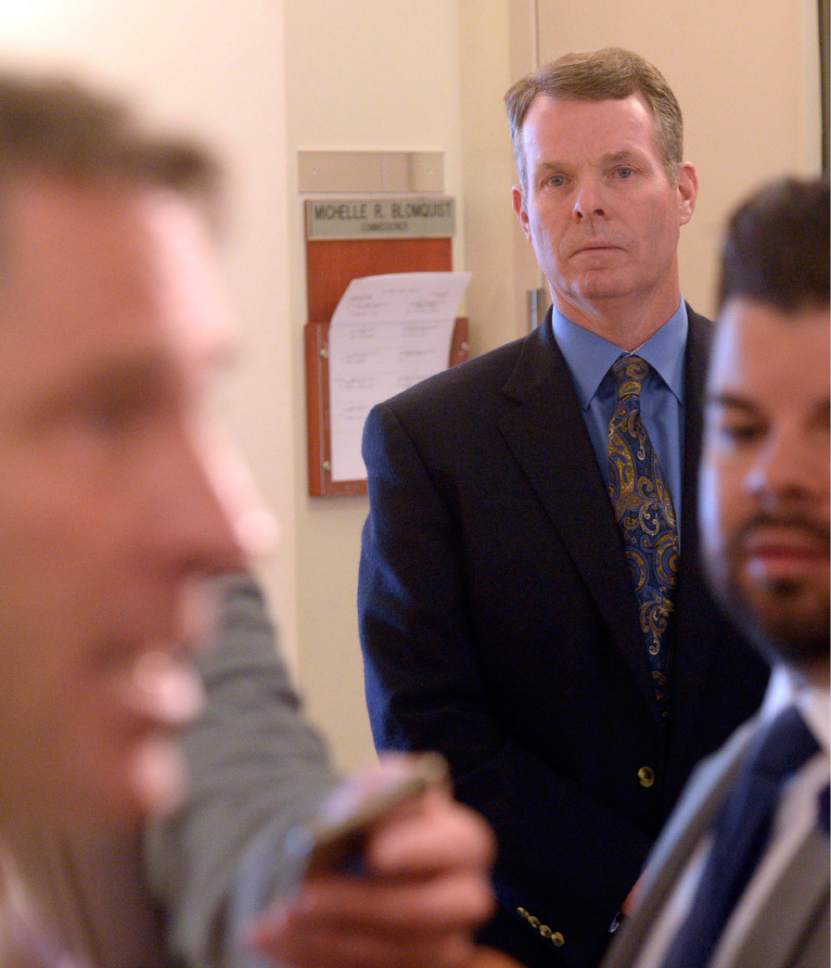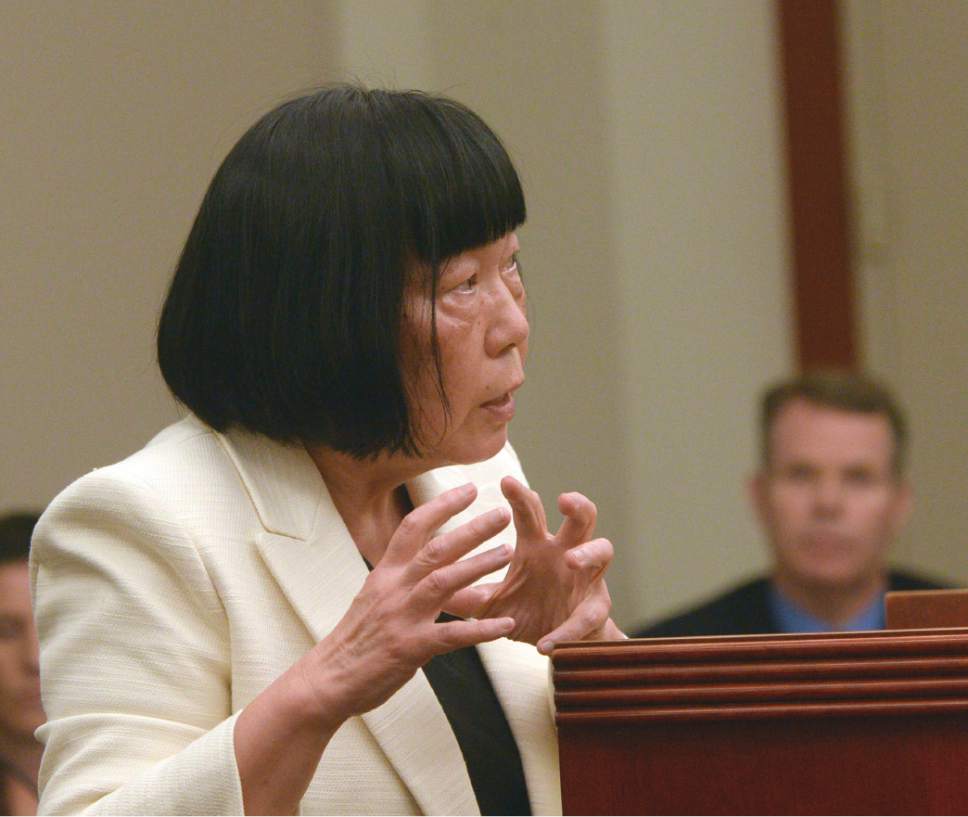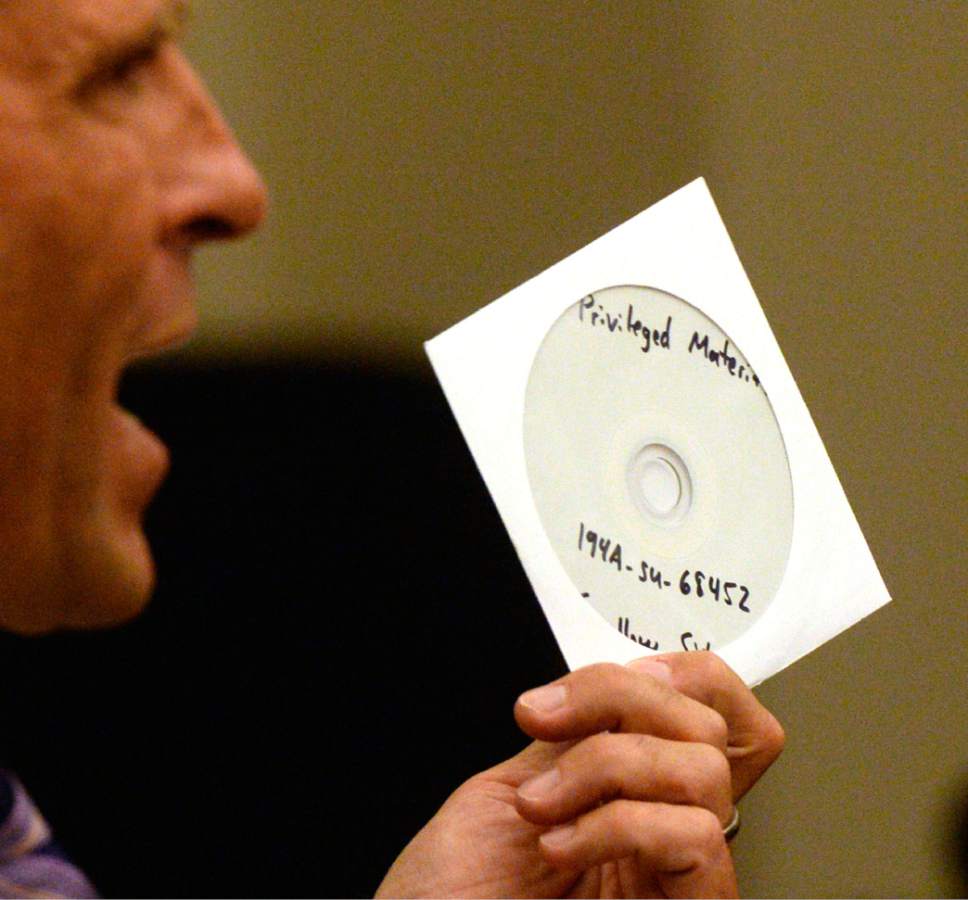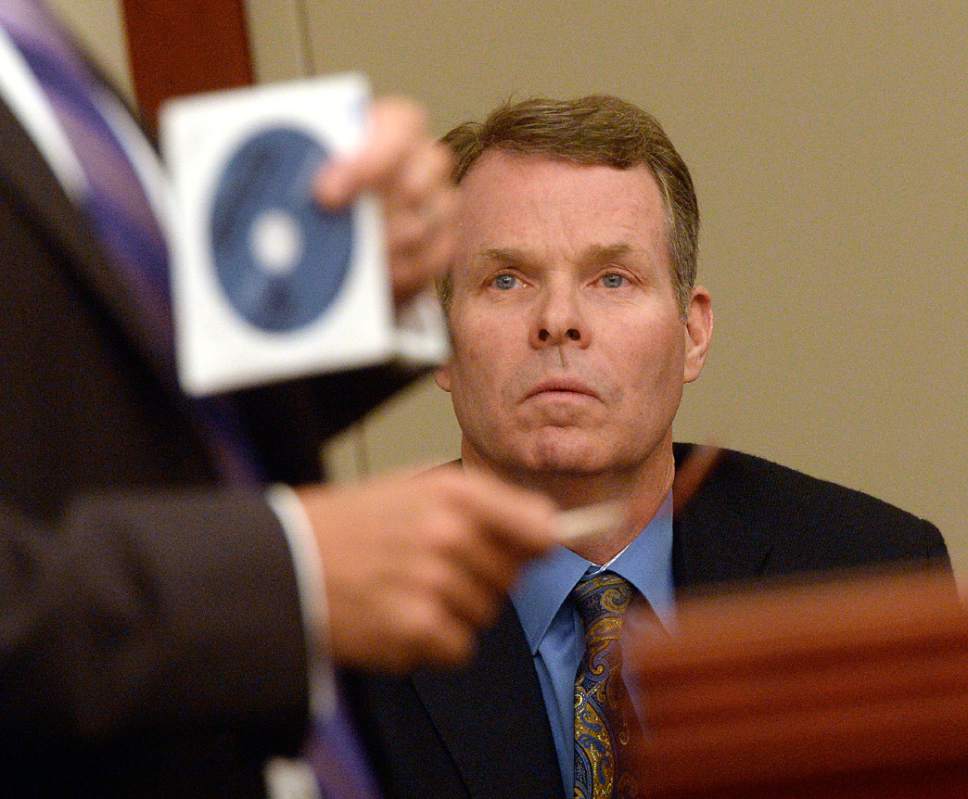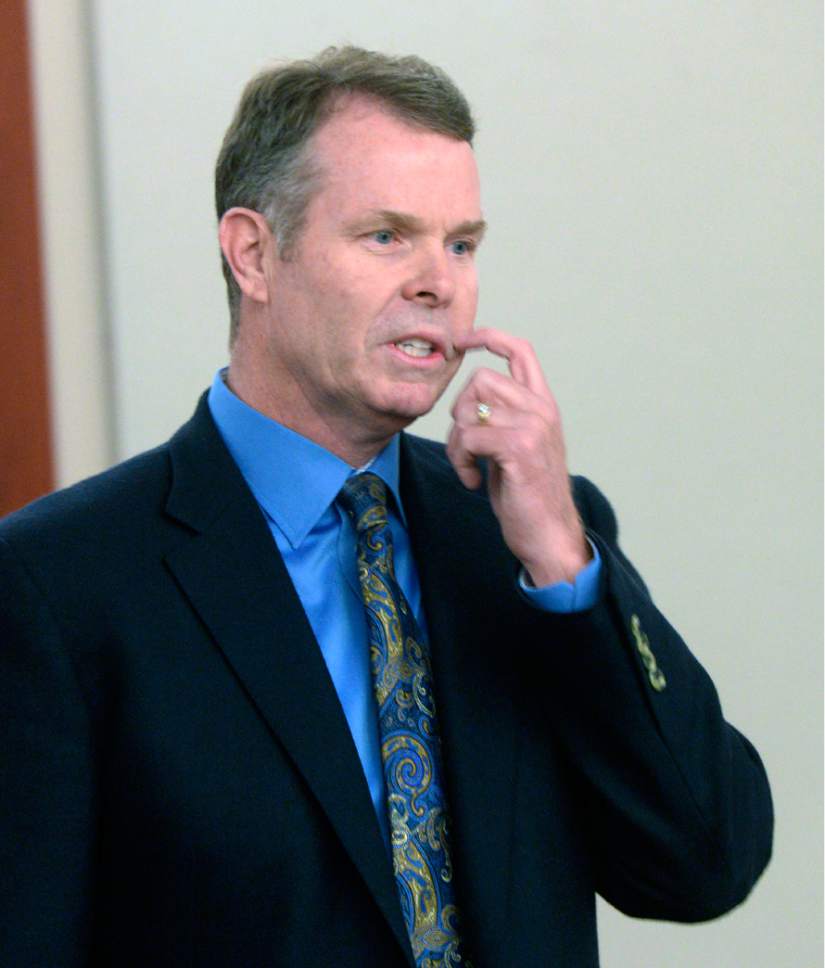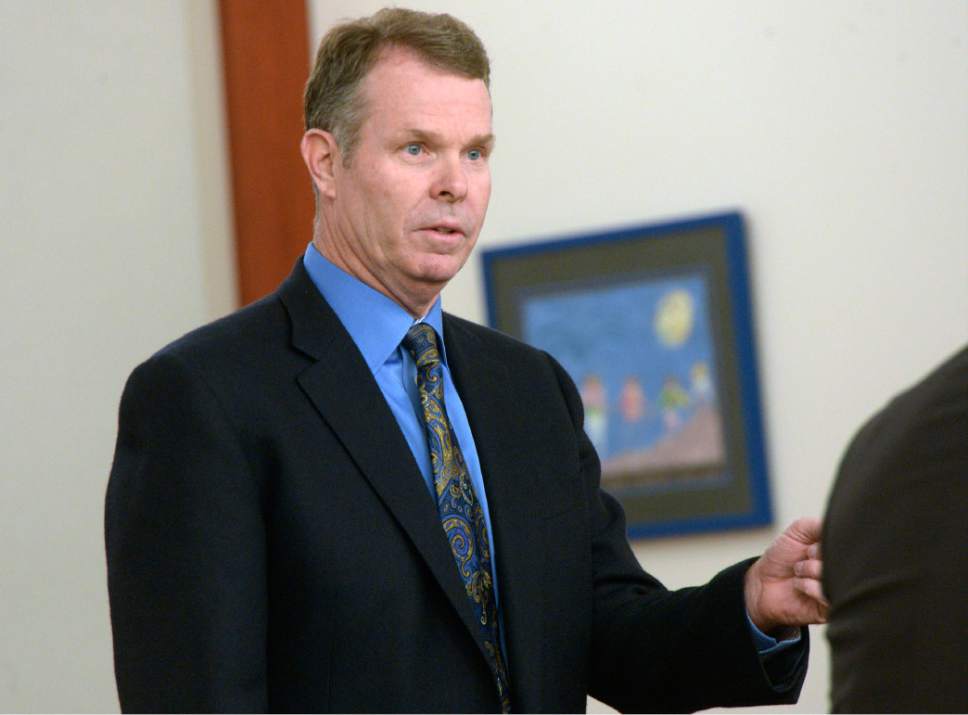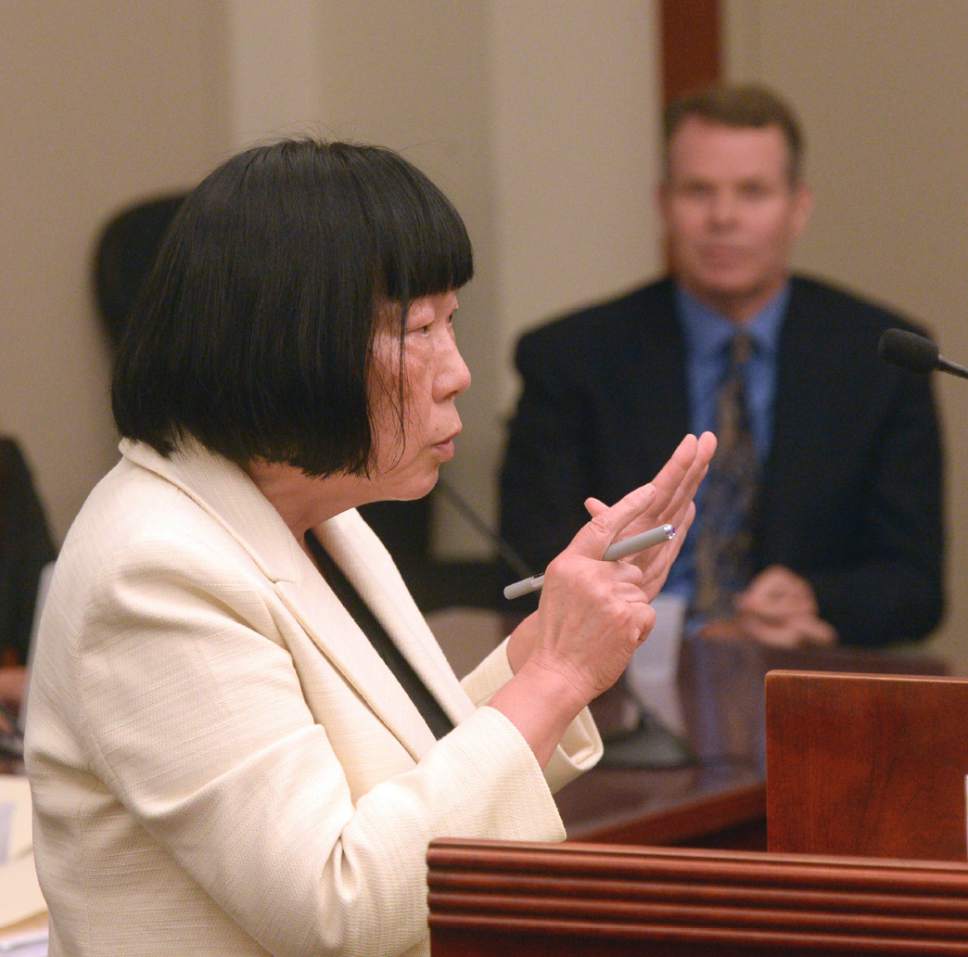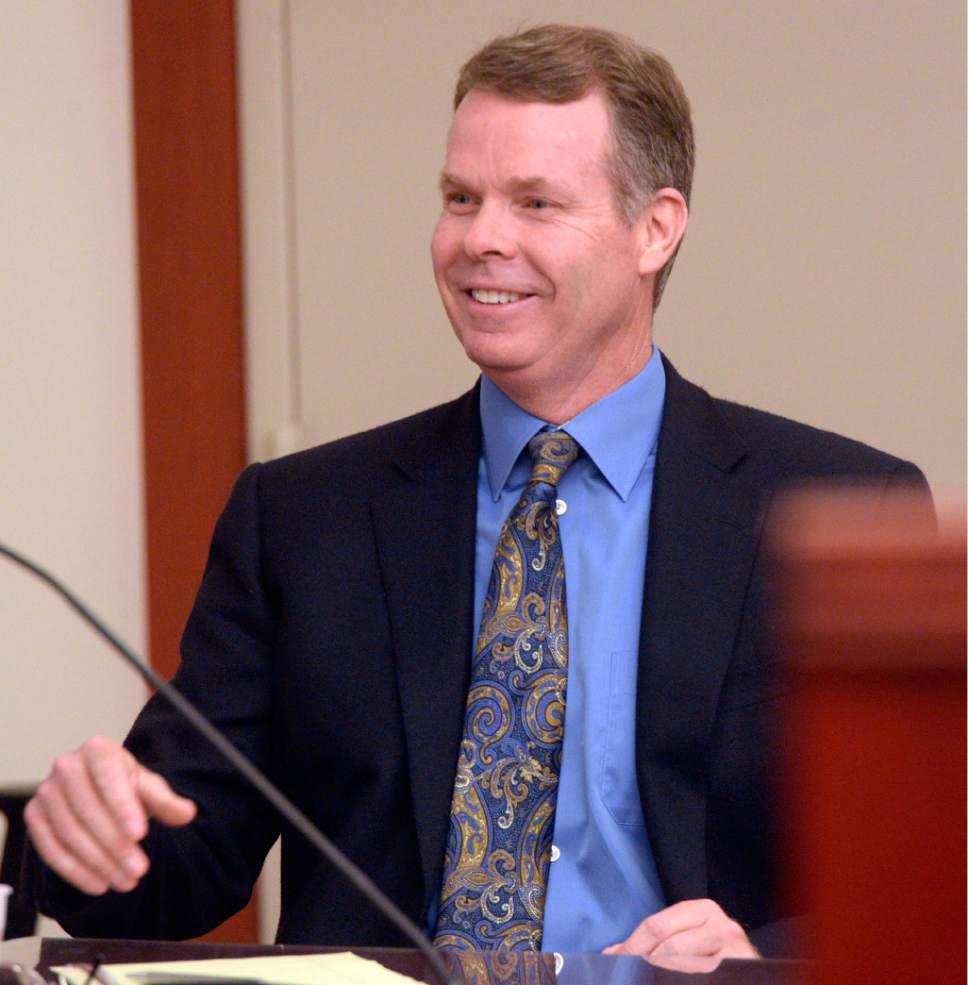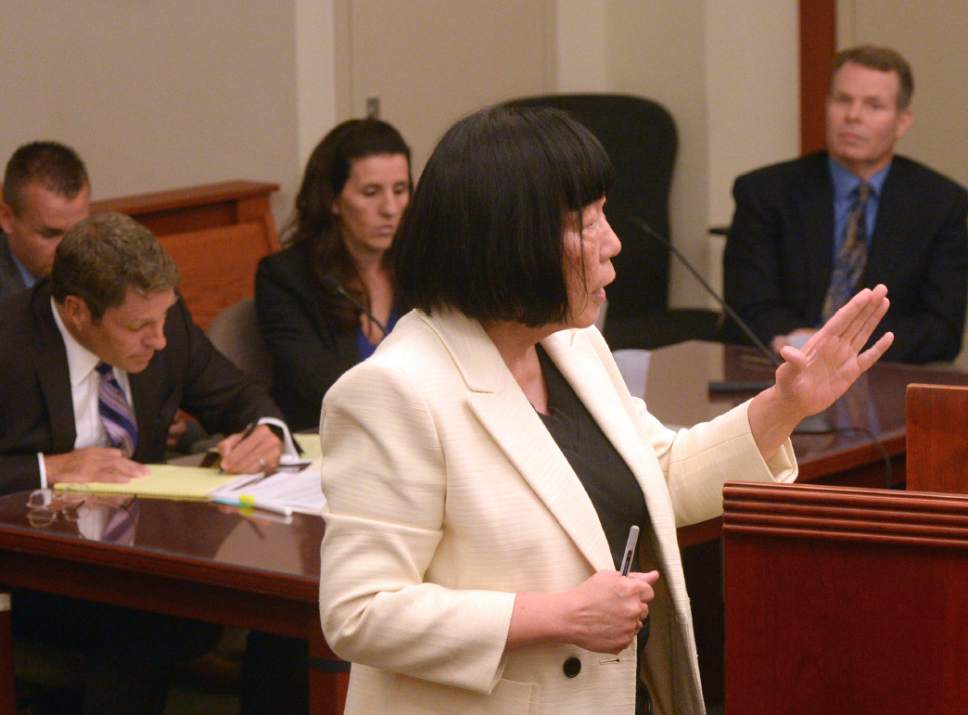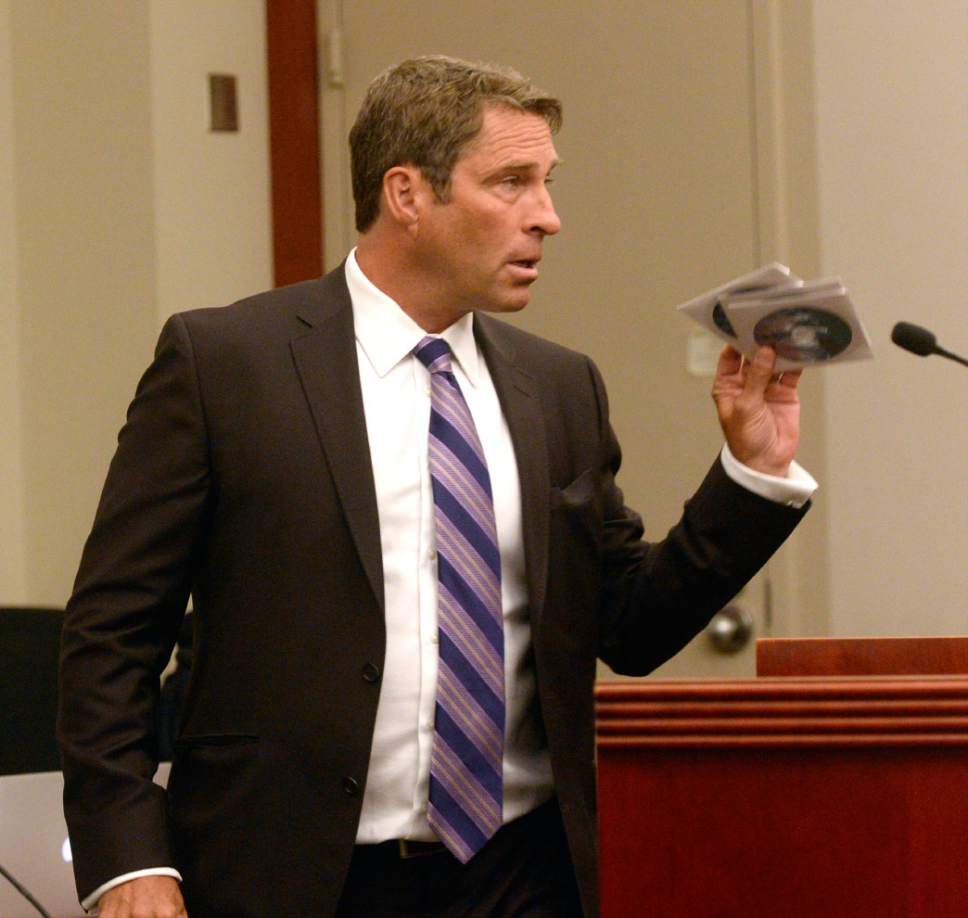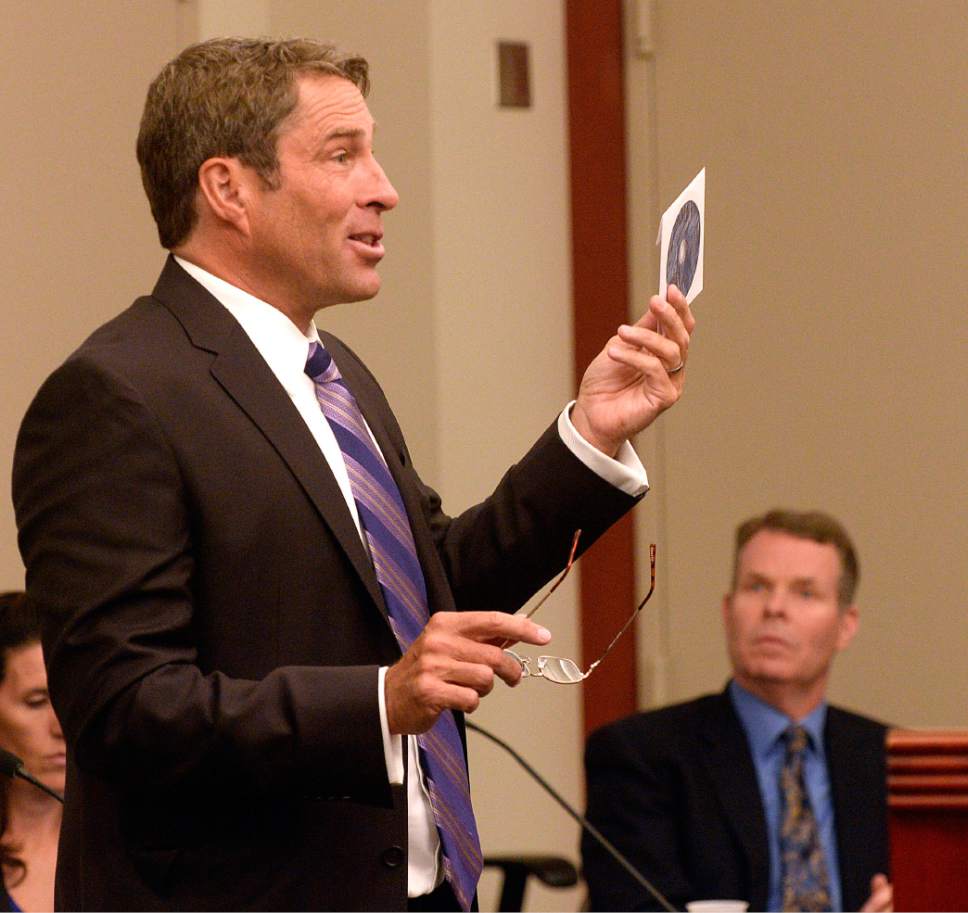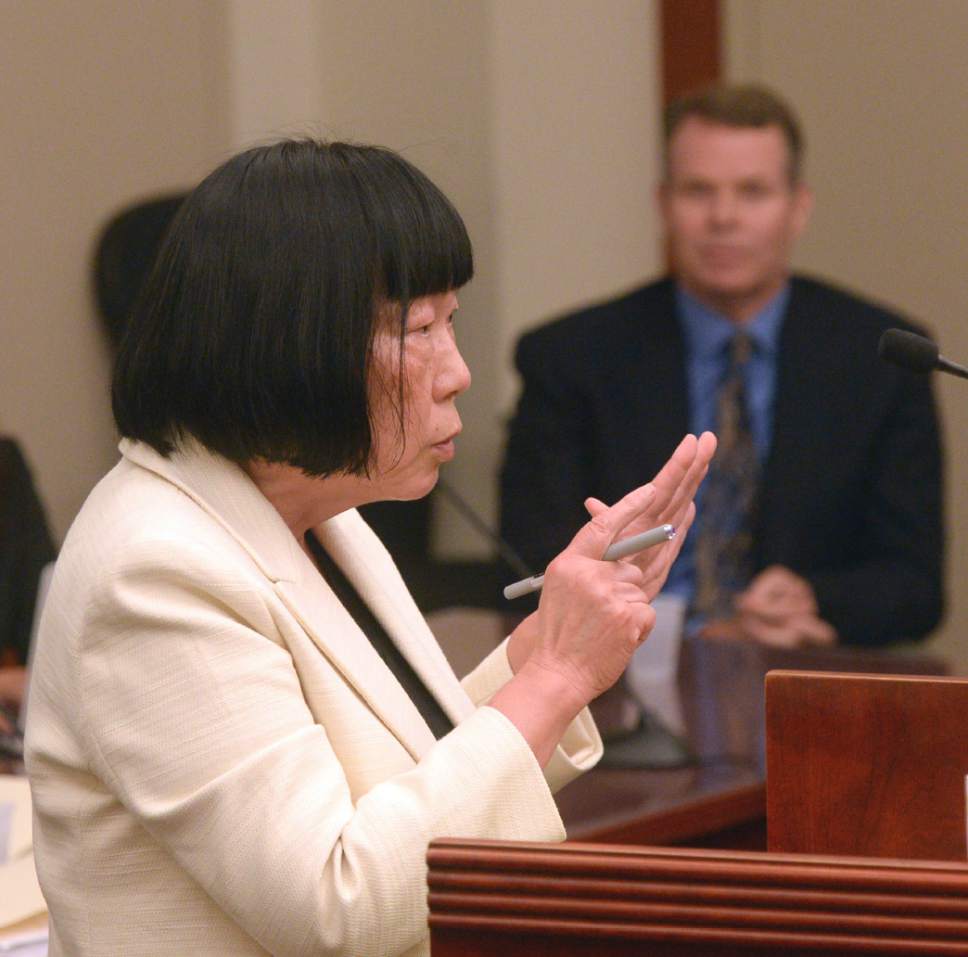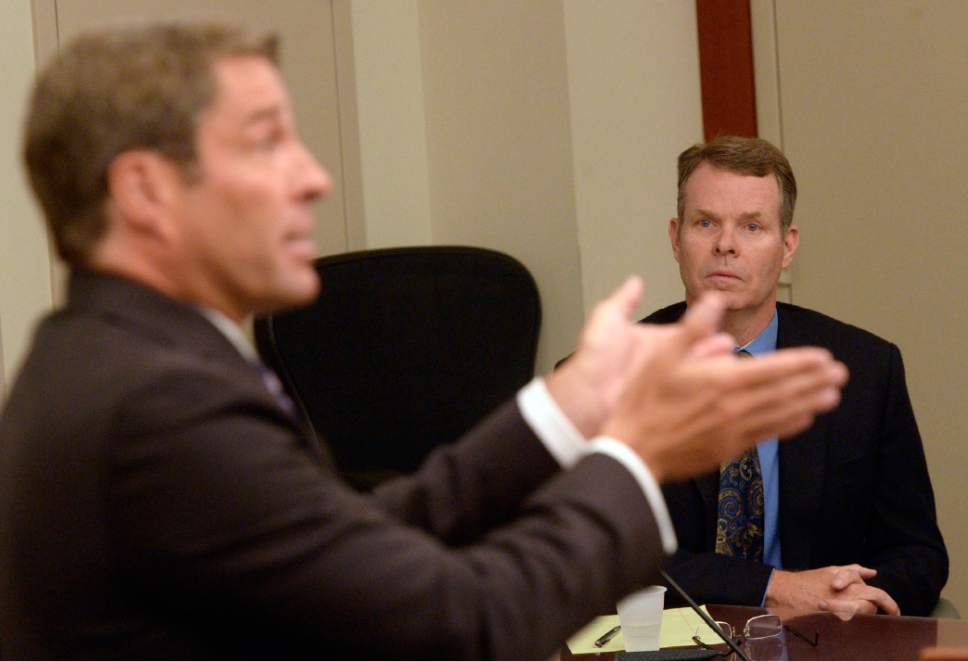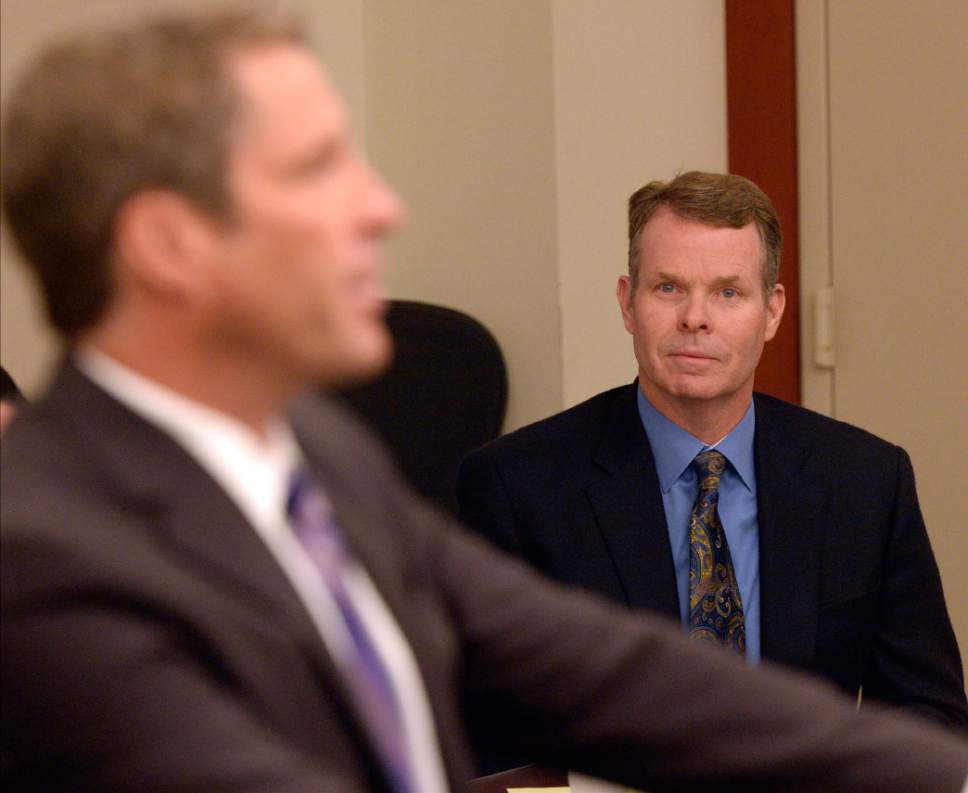This is an archived article that was published on sltrib.com in 2016, and information in the article may be outdated. It is provided only for personal research purposes and may not be reprinted.
After more than two hours of argument, a Utah judge is weighing whether to dismiss the public corruption case against John Swallow because investigators and prosecutors may have read thousands of private email communications with his lawyer.
Attorneys for the former Utah attorney general say the breach of more than 12,000 electronic records is a violation of Swallow's "sacrosanct" right to attorney-client privilege and his constitutional right to a fair trial.
"It is clear that this issue implicates the fundamental aspects of the criminal-justice system … fairness and fundamental due process," said Swallow's lawyer, Scott C. Williams, arguing for dismissal Wednesday in Salt Lake City's 3rd District Court.
Williams contends investigators recklessly and intentionally failed to screen out the private communications, and have used them to form the basis of the multiple criminal charges filed against Swallow in June 2014.
"It should be the end of the story; it's the fatal act," he told Judge Elizabeth Hruby-Mills.
Salt Lake County prosecutors counter that no breach occurred and said any missteps in handling the material by investigators is nothing more than an honest mistake.
"None of us read it or even saw it," Deputy Salt Lake County District Attorney Chou Chou Collins said.
There are no grounds for dismissal, Collins added, because Swallow, who attended Wednesday's hearing, can't prove that prosecutors had used — or would use — the information against him.
"There is no prejudice here," she said.
Hruby-Mills took the matter under advisement, but set an Aug. 12 date for a conference call with attorneys. She also said she may issue a written ruling sooner.
Meanwhile, the judge plans to review a set of five CDs that prosecutors recently provided to Swallow's defense team.
Williams argued the discs offer proof of a continuing violation of Swallow's rights, although Collins said that is because they contain only the privileged material.
Swallow has pleaded not guilty to 14 felony and misdemeanor charges, including counts of money laundering, misuse of public funds, obstruction of justice and falsifying government records.
No trial date is set. If convicted, Swallow faces up to 30 years in prison.
Swallow's emails and other electronic communications were on computers seized during a raid of his Sandy home a few weeks before his arrest.
The communications document the period between 2012 and 2013, when state and federal agents were investigating allegations of bribery and other alleged misconduct in the attorney general's office by Swallow and his predecessor, former three-term Attorney General Mark Shurtleff.
Court papers say the communications include discussions between Swallow and his then-attorney Rodney Snow about possible legal strategies or actions Swallow could employ during the course of the probe.
Snow alerted investigators to their existence at the time of the raid and provided agents with a 165-page privilege log, Williams said, but it was apparently ignored.
Copies of the documents are turning up as part of the case evidence, Williams said. The information has also been shared with attorneys involved in the prosecution of Shurtleff and his onetime fundraiser, Tim Lawson, who also faces criminal charges.
Williams said his office has identified at least 110 instances of the problem.
Collins said a "taint team," whose job is to screen out private communications, was employed, but only with the first of two batches of documents and information obtained by FBI investigators working on the case.
The second set, she said, was apparently not similarly screened and were accidentally "scrambled" in with other evidence by a third-party legal service provider used to copy and prepare evidence for trial.
"We didn't know it was part of the discovery," she said. "It was a mistake.
Swallow's lawyers first alerted prosecutors to the email issue in February and filed the motion to dismiss in April.
As an alternative to a dismissal, Swallow has asked Hruby-Mills to hold an evidentiary hearing to better determine whether prosecutors have read the emails.
Should the judge side with prosecutors, Williams said, he will appeal that decision to the Utah Supreme Court.


